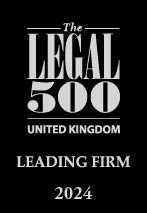First and foremost, the business will need to be registered with the UKVI for the issuing of Certificates of Sponsorship. It is necessary to demonstrate the ability of the overseas company to expand into the UK, it is a genuine trading entity and there are cogent plans to support the expansion.
If the UK entity does not have any existing employees, an Authorising Officer must be appointed from the overseas parent company. This person will be the first representative of the business in the UK, what previously would have been referred to as the sole representative or the overseas business representative.
The UKVI may attend your offices to audit your internal procedures prior to issuing a sponsorship licence.
The business must show it has:
- a UK ‘footprint’
- an overseas trading presence
- credible plans to expand to the UK and establish a trading presence within two years
Can demonstrate a UK ‘footprint’ by either:
- providing evidence it has UK business premises – for example, a lease agreement or documents showing it has purchased the premises; or
- providing evidence the business is registered with Companies House as either an overseas company branch or a new company that is a subsidiary of the overseas linked business.
The overseas business that is expanding to the UK must be active and trading overseas and, unless an exception applies, demonstrate it has been active and trading for at least 3 years prior to the date of application.
It must provide evidence the overseas business has been trading throughout the 12-month period immediately before the application for a sponsor licence (for example, corporate bank statements covering the entire period). It must also provide evidence showing the business was trading at the start of the 3-year period before the date of application and was actively trading throughout that 3-year period (for example, audited accounts).
It must show the business genuinely intends, and is able, to expand to the UK and establish a UK trading presence within two years. To determine this, the Home Office will consider evidence of the business planning and finances, including the size of the business, its previous activity and its potential.
The planned expansion must be in the same type of business conducted overseas, and cannot be a new business venture by the company.
The business to be established in the UK must be either wholly owned by the overseas business or part of the same legal entity (such as a branch).


